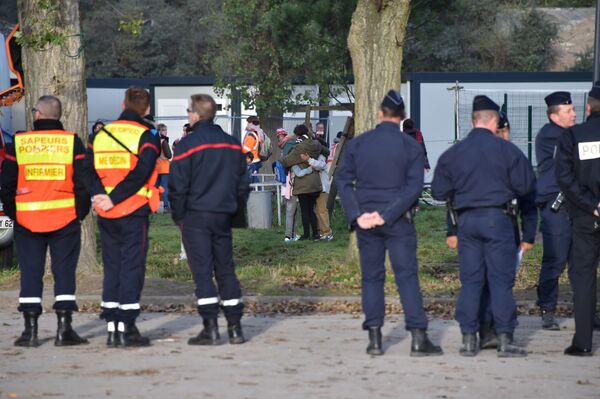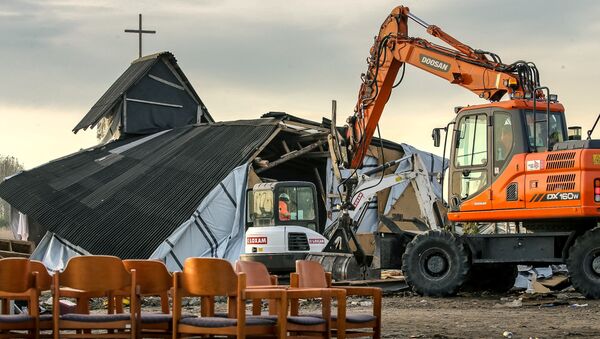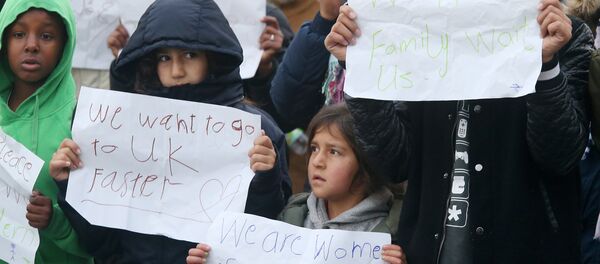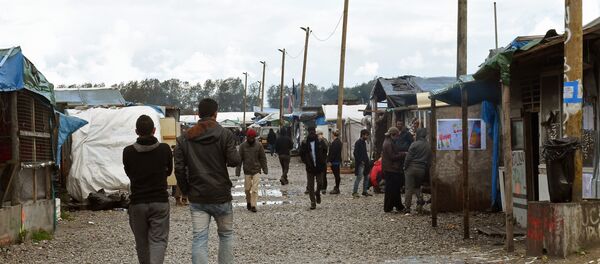He also promised to create mechanisms that will support all those migrants who will want to return to the town of Calais.
Last Monday, authorities in northern France wrapped up a week-long operation to relocate up to 6,000 refugees and migrants from the Calais camp to reception centers across the country.

Since 2015, Calais has been the home to a large migrant camp, notorious for its horrible living conditions. Thousands of migrants have been trying to cross into the United Kingdom via the Channel Tunnel between Folkestone in Britain and Coquelles in Calais.
In an interview with Sputnik, Francois Guennoc, the vice president of the local charity L'Auberge des Migrants (Migrants' Shelter), said that the demolition of the Calais refugee camp indicates that the French government "will do its best to prevent refugees from returning to the border."
"The government knows full well that most refugees from the Calais camp remain stranded and that they will try to go back to the border in the coming weeks or months. It is clear that the government's goal is to create mechanisms that could stop migrants from returning to the border," Guennoc said.
He blamed the government for pursuing an "inconsistent" migration policy, drawing attention to the fact that the government touts the creation of new mechanisms in Calais to support migrants, but turns a blind eye to the already existing mechanisms, for example, the Jules-Ferry migration center, which accommodated refugees earlier.

"So if the government were consistent, it would have just left all these structures in place. All that Cazeneuve tells us are nothing but empty promises, which he isn't likely to keep," Guennoc added.
Late last month, United Nations High Commissioner for Refugees (UNHCR) spokesperson William Spindler said that the closure of the Calais camp demonstrates that European nations need to cooperate to address issues with refugee resettlement.
Earlier, the UNHCR said that it is assisting the evacuation efforts in Calais by identifying unaccompanied children and other people with special needs. Around 200 unaccompanied children have left Calais to be resettled in the United Kingdom.




